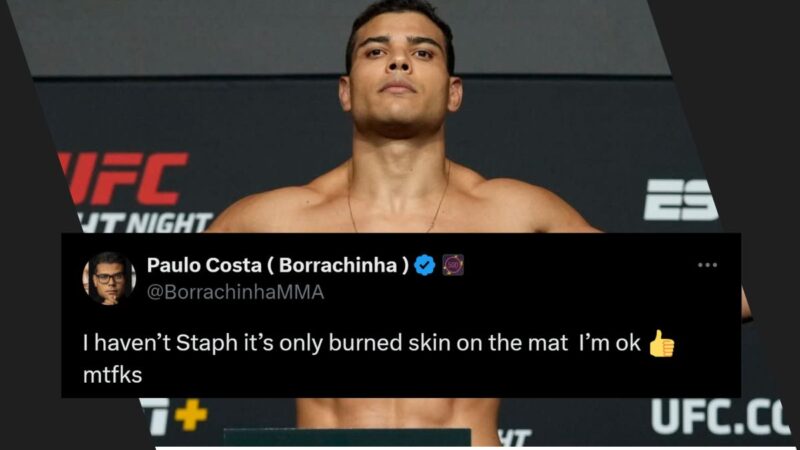Study Finds Tainted Supplements in Over 28% of Samples

Since the UFC ramped up its anti-doping policy in the 2010s, the term “tainted supplements” has become increasingly popular among athletes. During the USADA and WADA eras, many fighters have claimed they did nothing wrong and that the substances found in their blood tests were the result of honest mistakes.
The community—on the other hand—often sees this as a copout. Whenever an athlete cries “tainted supplement,” most of the fanbase assumes the person was actually doping.
Over the last decade, MMA has seen dozens of cases involving a potential mistake in the manufacture of supplements. Fighters like Jon Jones and Yoel Romero (it’s always the ones you’d never suspect!) have used this claim.
However, even if a fighter successfully proves that he or she used a contaminated sample, this doesn’t necessarily mean they will go unescaped. In 2019, Sean O’Malley, Marvin Vettori, Augusto Mendes, and Nico Montano all tested positive for “ostarine”, an androgen receptor capable of facilitating muscle growth.
Despite USADA deeming the ostarine positive flags as a result of cross-contamination during the fabrication of the supplements, all fighters involved received a six-month suspension.
In recent times, rising UFC light-heavyweight contender Khalil Rountree announced on social media that he was withdrawing from his co-main event bout against Jamahal Hill on UFC 303.
“I’m gutted to deliver this news to you all, but I will not be fighting at UFC 303 due to consuming a banned substance,” Rountree noted on Instagram. “I did not do this intentionally and I am doing everything I can to get this situation taken care of. “
Soon after, the UFC issued a statement aligning with Rountree’s comments. According to the organization, Khalil submitted shipping records to CSAD, showing he received the supplement containing DHEA on May 2, 2024, just two days before he provided the May 4th sample.
Rountree also presented documentation from the clinic owner who sent him the supplement, indicating that the company’s Brand Marketing Director sent Rountree some of their ‘therapeutic blends’ supplements without prior authorization.
As a result, the fighter is currently on a temporary 2-month suspension. He will be eligible to return to competition once the suspension period is over.
How Often Are Supplements “Tainted”?
While this definitely is a question with no definitive answer, cross-contamination during the manufacturing of supplements and vitamins is more common than the public perception believes it to be.
A 2022 study titled “Dietary Supplements as Source of Unintentional Doping”, conducted by Vanya Rangelov Kozhuharov, Kalin Ivanov, and Stanislava Ivanova, shed light on this issue that has been plaguing athletes all around the world.
The investigation analyzed thousands of samples for dietary supplements, and the findings were definitely surprising. According to it, over 28% of all supplements contain unlabeled substances that pose a risk of unintentional doping.
Surprisingly, the very same substance that caused Khalil Rountree to pop is found in several commercially distributed supplements all around the world. In an examination from Germany, out of 634 analyzed dietary supplements, 94 were found to contain undeclared substances, including DHEA. This represents approximately 14.8% of the positive supplements.
In another sample from Switzerland, out of 75 analyzed supplements, 7 were found to contain DHEA, among other substances. Also, a study from New Zealand found DHEA in 6 out of 112 analyzed dietary supplements.
So, while the “tainted supplements” excuse may seem like a convenient loophole, the reality is that it’s a serious issue affecting athletes worldwide. The stats don’t lie—studies have found that a significant portion of supplements contain substances not listed on the label.
Finally, the study from Medical University-Plovdiv details that the prevalence of unsafe dietary supplements underscores the need for stricter regulation worldwide. One crucial aspect lacking in the oversight of these supplements is mandatory analytical control. Without rigorous testing to verify the quality, quantity of active substances, and absence of impurities, athletes and consumers are left vulnerable to potential harm and unintentional doping incidents.
Addressing this gap in regulation could not only protect athletes’ careers but also ensure the safety and trust of consumers in the supplement industry. It’s time for regulatory bodies to step up and implement measures that prioritize transparency, accuracy, and safety in dietary supplements.







